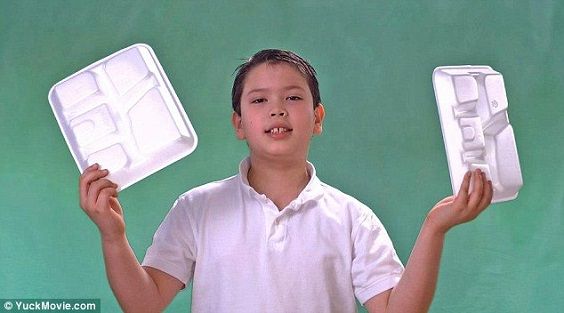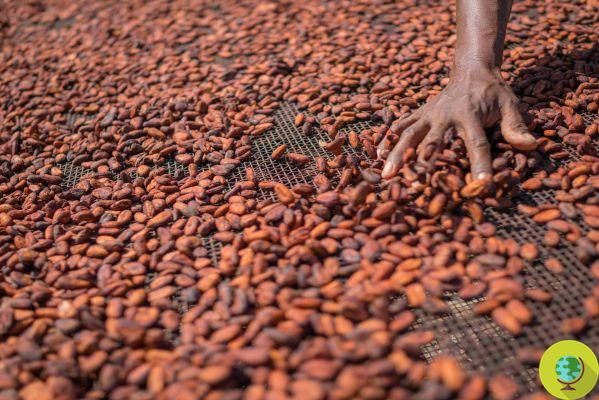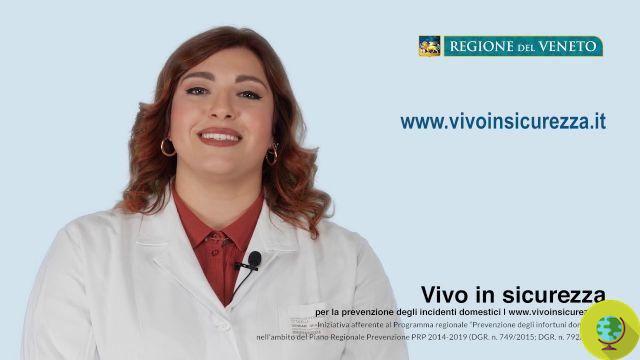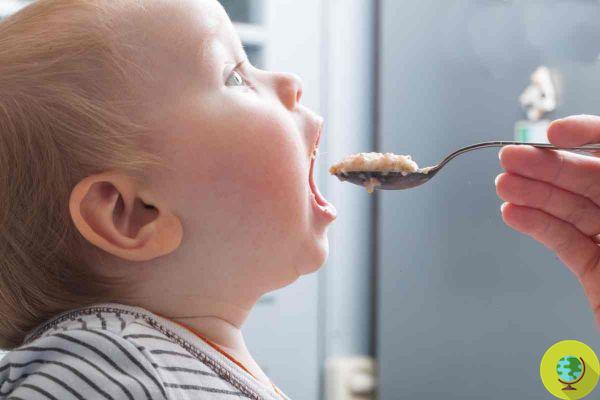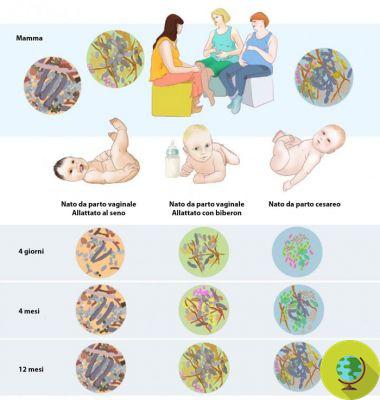
The intestinal bacterial flora or microbiota is essential for the health of the organism, even in newborns. Research has highlighted some factors that could diminish the variety
Don't store avocado like this: it's dangerousCesarean delivery, formulated milk and antibiotics reduce the biodiversity of the intestinal bacterial flora of newborns
As is now known, the intestine is populated by the bacterial flora also known as microbiota. The balance of these microorganisms is essential for our health. A recent study has discovered how some factors such as caesarean section, the use of infant formula and antibiotics reduce the biodiversity of the intestinal microbiota in the first year of life with a greater risk of developing some problems.
This conclusion was reached by a Canadian research team that published its results in the journal Frontiers in Pediatrics. The study was carried out by taking a sample of 166 newborns, all born at term but some with natural birth and others with caesarean section.
Infants involved and followed throughout the first year of life were divided into several groups according to the way they were born (natural or cesarean delivery), the type of nutrition (breastfeeding or formulated milk) and whether they were used antibiotics or not during the mother's pregnancy or directly administered to the newborn in the first 3 months of life.
To evaluate the situation of the intestinal bacterial flora, fecal samples were collected at 3 months and at 1 year, thanks to which it was possible to analyze the changes in the microbiota of the young.
It has thus been seen that the composition of the intestinal flora throughout the first year of life is particularly influenced by some situations and external factors. In particular, it would be caesarean section, exposure to antibiotics and the use of formulated milk to delay the maturation of some species of good bacteria that are found inside the intestine.
Specifically, children born by caesarean or who took antibiotics directly or indirectly had a slowed decrease in Proteobacteria at 3 months compared to other children. Artificial nutrition and antibiotics also affect the Enterobacteriaceae genus.
Babies born in natural birth, breastfed and not exposed to antibiotics show an increase in species such as Vellonella, Roseburia and Fusobacterium.
But these data (which are only part of the copious study), difficult to interpret, what do they mean in concrete terms? A greater future risk for babies born by caesarean, bottle-fed or exposed to antibiotics, of developing metabolic and immune disorders but above all of being struggling with intolerances e food allergy or obesity problems.
On the intestinal microbiota you may also be interested in:
- SEROTONIN AND BACTERIA: THE SECRET OF OUR WELL-BEING IS IN THE INTESTINE
- MEAT AND DAIRY PRODUCTS QUICKLY ALTER INTESTINAL FLORA
- A HEALTHY INTESTINAL FLORA IS GOOD FOR THE BRAIN: PSYCHOBIOTICS IS BORN
It is evident that this research needs to be deepened, it must in fact be considered that the sample analyzed is too small and located in a restricted geographical area to be truly exhaustive. There is therefore a need for further insights to better understand how the intestinal microbiota is formed and modified in the first year of life and which factors are able to influence it positively or negatively.







